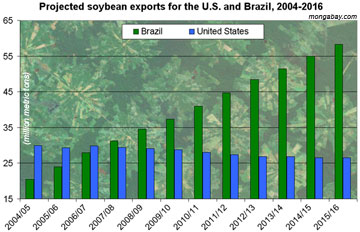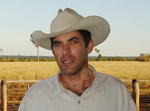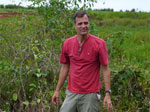Archer Daniels Midland announces biodiesel plant start date in the Amazon
Archer Daniels Midland announces Amazon biodiesel plant start date
mongabay.com
June 8, 2007
Archer Daniels Midland (ADM) plans to start operation of its $20 million biodiesel in the Brazilian state of Mato Grosso in early August, a company official said this week, according to MarketWatch.
The plant, currently under construction in the city of Rondonopolis, will churn out around 300,000 metric tons of biodiesel a year. The biodiesel will use soybeans as the primary feedstock — Mato Grosso is the largest producer of soy in Brazil.
ADM owns four soybean crushers in Brazil and is one of the largest buyers of Brazilian soybeans for export. Brazil is the world’s second largest exporter of soybeans after the United States, though it is projected to soon become the world’s top exporter.
 Projected soybean exports for Brazil and the United States, 2004-2015. Chart based on USDA data. Click to enlarge. |
Environmentalists have expressed concerned over the expansion of soy in the Amazon. They say the crop is driving deforestation and worsening drought in the world’s largest rainforest.
Earlier this year Archer Daniels Midland, along with other crushers, agreed to a two-year moratorium on soy produced on newly deforested lands. The moratorium was initiated by Greenpeace.
This article used information from a MarketWatch report
Related
An interview with John Cain Carter:
Cattle ranchers and soy farmers could save the Amazon

|
(06/06/2007) John Cain Carter, a Texas rancher who moved to the the Brazilian state of Mato Grosso 11 years ago and founded what is perhaps the most innovative organization working in the Amazon, Aliança da Terra, believes the only way to save the Amazon is through the market. Carter says that by giving producers incentives to reduce their impact on the forest, the market can succeed where conservation efforts have failed. What is most remarkable about Aliança’s system is that it has the potential to be applied to any commodity anywhere in the world. That means palm oil in Borneo could be certified just as easily as sugar cane in Brazil or sheep in New Zealand. By addressing the supply chain, tracing agricultural products back to the specific fields where they were produced, the system offers perhaps the best market-based solution to combating deforestation. Combining these approaches with large-scale land conservation and scientific research offers what may be the best hope for saving the Amazon.
[
Amazon | Featured | Interviews]

|
(06/04/2007) The Amazon basin is home to the world’s largest rainforest, an ecosystem that supports perhaps 30 percent of the world’s terrestrial species, stores vast amounts of carbon, and exerts considerable influence on global weather patterns and climate. Few would dispute that it is one of the planet’s most important landscapes. Despite its scale the Amazon is also one of the fastest changing ecosystems, largely as a result of human activities, including deforestation, forest fires, and, increasingly, climate change. Few people understand these impacts better than Dr. Daniel Nepstad, one of the world’s foremost experts on the Amazon rainforest. Now head of the Woods Hole Research Center’s Amazon program in Belém, Brazil, Nepstad has spent more than 23 years in the Amazon, studying subjects ranging from forest fires and forest management policy to sustainable development. Nepstad says the Amazon is presently at a point unlike any he’s ever seen, one where there are unparalleled risks and opportunities. While he’s hopeful about some of the trends, he knows the Amazon faces difficult and immediate challenges.
[
Amazon | Featured | Interviews]